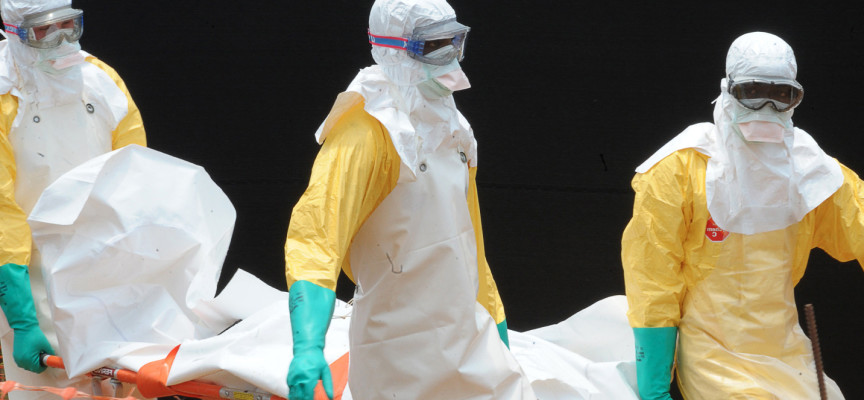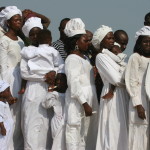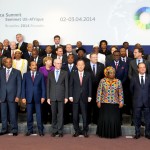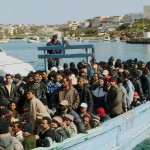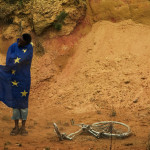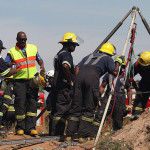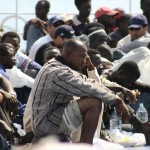The recent assurances by the World Health Organization (WHO) on the improbability of an epidemic of Ebola in the West were not sufficient. For weeks in Europe and the United States we have witnessed a growing concern for a future extension of the infection.
Such a concern, provided it does not turn into alarmism, will certainly help to keep our guard up and step up efforts to contain and combat the disease, but it also brings to light some deep gaps and the usual bias which affects us, on this side of the Mediterranean area, when we look at the African continent.
First, we see here the typical generalization of those who consider Africa as a single big country. For nine out of ten Europeans the outbreak of Ebola in progress – and let’s say it clearly: one of the most extensive and dangerous health crises of recent decades – is taking place in an unspecified location in the world whose boundaries can be hardly identified.
A few days ago the Authority for tourism in Zimbabwe stated that, because of the Ebola threat, this country in Southern Africa is likely to suffer damage to its tourist industry for millions of dollars. It does not matter that Zimbabwe is almost 6,000 km away from the epicentre of the crisis. To give you an idea, Brussels is closer to the epicentre, as it is just over 5,000 km away from Freetown, Liberia’s capital city.
Very few people in Europe would be able to find on the map Guinea, Sierra Leone, and Liberia, the countries corresponding to the epicentre of the epidemic. According to the conventional wisdom wherever a “black” human being lives we are to fear the threatening peril of Ebola. A vision that emphasizes a chronic (and not new) ignorance, mixed with a hint of racism against Africans (lesson nr. 2).
This may lead to think, more or less unconsciously, that migrants arriving across the Mediterranean sea are vehicles of the virus. Not noticing that, to date, the virus came from Africa by air and not by sea.
As a reaction to these news, the temptation once again is to build walls and barriers, close the doors, and raise fences, in the hope that this is enough to block the virus.
We must have the courage to admit that the epidemic of Ebola began to matter to us after the first casualties of non-African citizens, when we slowly came to realize that this dark evil could become ours too. It took six months for us to be aware of it, a time that has resulted in 4,500 confirmed victims (4,497 in Africa) and twice the number of infected people.
Nevertheless, in spite of the strikes to protest against the limited equipment and the paltry wages they receive each month, thousands of medical doctors and nurses in Africa (with the help of international staff) went back to work to try to stem the epidemic and prevent the spreading of the virus.
They fight and die to win a battle which is also our battle, to prevent the virus from affecting us one of these days.
A battle for which they need an economic, medical, and human support by citizens and governments, instead of unnecessary echoes of a new hunt.
Because the third lesson that the epidemic teaches us is that the only way to solve problems is to have the courage to tackle their root causes and not just counteract their effects.
And this applies to Ebola and beyond.
Non sono bastate le recenti rassicurazioni dell’Organizzazione mondiale della Sanità (OMS) sull’improbabile diffusione dell’epidemia di ebola in Occidente: da settimane in Europa e negli Stati Uniti stiamo assistendo a una crescente preoccupazione per una prossima estensione del contagio.
Un’attenzione che, se non scadrà nell’allarmismo, sarà certamente utile a tenere alta la guardia e a potenziare gli sforzi per il contenimento e il contrasto alla malattia, ma che porta alla luce alcune lacune profonde e i soliti pregiudizi con cui, da questo lato del Mediterraneo, si guarda al continente africano.
Per prima cosa stiamo assistendo alla solita generalizzazione di chi considera l’Africa come un unico, piccolo grande Paese. Per nove europei su dieci l’epidemia di ebola in corso – diciamolo con chiarezza: una delle più estese e pericolose crisi sanitarie degli ultimi decenni – sta avvenendo in un luogo imprecisato del mondo di cui si fatica a comprenderne i confini.
Pochi giorni fa l’autorità per il turismo dello Zimbabwe ha dichiarato come, a causa della minaccia dell’ebola, il Paese dell’Africa australe rischia di subire danni al proprio settore turistico per milioni di dollari. E poco importa che lo Zimbabwe disti quasi 6 mila chilometri in linea d’aria dall’epicentro della crisi; per capirci è più vicina Bruxelles che ne dista poco più di cinque mila dalla capitale della Liberia Freetown.
Questo perché pochi in Europa saprebbero trovare sulla cartina Guinea, Sierra Leone e Liberia, i Paesi epicentro dell’epidemia. Secondo il pensiero comune ovunque viva un “nero” cova minacciosa l’insidia di Ebola. Una visione che denota una cronica (e non nuova) ignoranza, mista a un pizzico di razzismo, nei confronti degli africani (lezione n. 2).
Si arriva allora a pensare, più o meno inconsciamente, che i migranti in arrivo attraverso il Mediterraneo siano veicoli del virus. Non notando come, ad oggi, il virus sia uscito dall’Africa per via aerea e non via mare.
Di fronte a queste notizie la tentazione è allora quella di alzare ancora una volta i muri e le barriere, di chiudere le porte, di alzare steccati, sperando che questo basti a bloccare il virus.
Dobbiamo avere il coraggio di ammettere che dell’epidemia di ebola è iniziato a importarci quando si sono registrate le prime morti di cittadini non africani, quando ha iniziato a insinuarsi in noi il rischio che quel male oscuro potesse essere cosa nostra. Perché questo avvenisse ci sono voluti sei mesi, un tempo che si è tradotto in 4.500 morti già accertati (di cui 4.497 in Africa) e in un numero doppio di contagi.
Nonostante questo, nonostante gli scioperi per gli scarsi equipaggiamenti e per i salari miseri che ricevono ogni mese, migliaia di medici e infermieri africani (con l’aiuto del personale internazionale) sono tornati al lavoro per cercare di arginare l’epidemia e impedire che il virus continui a propagarsi.
Lottano e muoiono per vincere una battaglia che è anche nostra, per evitare che il virus possa arrivare un giorno da noi.
Una battaglia per cui avrebbero bisogno del sostegno economico, sanitario e umano di cittadini e governi, invece degli inutili echi di una nuova caccia.
Perché la terza lezione che c’insegna l’epidemia è che l’unico modo di risolvere i problemi è avere il coraggio di affrontarne le cause alla radice e non limitarsi a contrastarne gli effetti.
Vale per ebola e non solo.
Michele Luppi
www.africaeuropa.it
Latest posts by Michele Luppi (see all)
- How can Europe do that? - 16 aprile 2016
- A raw nerve in european consciousness - 23 luglio 2015
- The cry of the dead of Garissa - 18 aprile 2015

